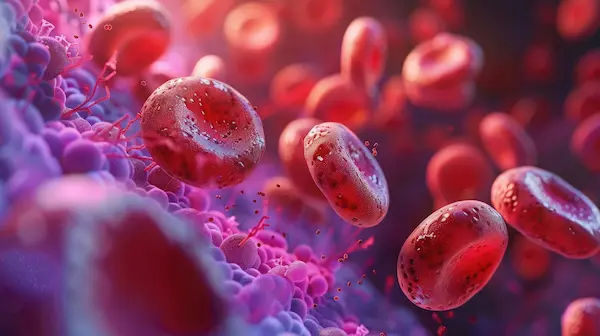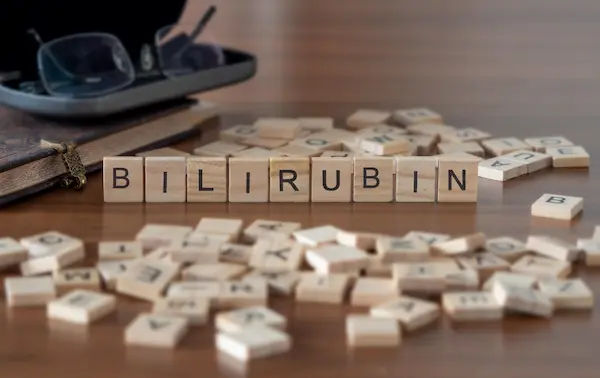How To Reduce Bilirubin Quickly?
Discover simple, natural ways to reduce high bilirubin levels. Learn about liver-friendly foods, hydration, lifestyle changes, and when to seek medical help.

Written by
Last updated on 13th Jan, 2026
Introduction
Bilirubin is a yellow pigment produced when your body breaks down old red blood cells. Normally, your liver processes bilirubin and removes it from your body through bile. However, if your liver isn’t functioning properly or if there’s an excessive breakdown of red blood cells, bilirubin levels can rise, leading to a condition called hyperbilirubinemia. High bilirubin can cause jaundice (yellowing of the skin and eyes), fatigue, and other health issues.
If you’re looking for ways to reduce bilirubin quickly, here’s a simple, easy-to-understand guide to help you manage it effectively.
What Causes High Bilirubin?
High bilirubin levels can result from several underlying conditions. Common causes include:
Liver Diseases: Hepatitis, cirrhosis, or fatty liver disease can impair liver function and prevent proper bilirubin processing.
Gallbladder or Bile Duct Issues: Blockages (like gallstones) can prevent bilirubin from leaving the body.
Hemolytic Anemia: This condition causes red blood cells to break down too quickly, producing more bilirubin than the liver can handle.
Newborn Jaundice: Common in babies due to an immature liver that can't yet process bilirubin effectively.
Gilbert’s Syndrome: A harmless genetic condition that causes occasional mild bilirubin spikes.
Medications & Alcohol: Certain medications and excessive alcohol intake can damage the liver or interfere with bilirubin metabolism.
Symptoms of High Bilirubin
When bilirubin levels rise, the body may show several signs. The most noticeable symptom is jaundice. Other may include:
Dark-coloured urine
Pale or clay-coloured stools
Fatigue and weakness
Itchy skin
Abdominal pain or swelling
If you experience these symptoms, consult a doctor to determine the underlying cause.
Consult Top Experts for Personalised Solutions
How to Reduce Bilirubin Quickly?
Mild bilirubin elevation can often be managed with lifestyle changes. Here are some effective ways to lower bilirubin levels:
1. Stay Hydrated
Drinking plenty of water supports your liver by flushing out toxins, including excess bilirubin. Aim for 8-10 glasses of water daily. Herbal teas, like dandelion or ginger tea, may also support liver function.
2. Eat a Liver-Friendly Diet
Certain foods help detoxify the liver and reduce bilirubin:
Fruits and vegetables like apples, beets, carrots, leafy greens, and citrus fruits
Whole grains such as oats, brown rice, and quinoa
Lean proteins including fish, chicken, and legumes support liver repair.
Healthy fats from avocados, nuts, and olive oil
Avoid alcohol, processed foods, excessive sugar, fried food, and fatty meats.
3. Get Enough Fibre
Fiber helps remove excess bilirubin through stool. Include high-fibre foods like whole grains, lentils, flaxseeds, and vegetables in your diet.
4. Exercise Regularly
Physical activity improves blood circulation and liver function. Aim for 30 minutes of moderate exercise, such as walking, yoga, or light cardio, daily.
5. Avoid Alcohol & Harmful Medications
Alcohol can damage the liver and raise bilirubin levels. Some painkillers (like acetaminophen) can also increase bilirubin. Always consult your doctor before taking them.
6. Try Natural Remedies (Under Medical Guidance)
Some natural options may help support liver health:
Turmeric: Contains curcumin, which supports liver detoxification.
Milk Thistle: A herb traditionally used to protect liver cells.
Papaya Leaf Extract: May help regulate bilirubin levels.
Always check with a doctor before trying any supplements.
7. Manage Stress
Chronic stress can negatively impact liver function. Practice relaxation techniques like meditation, deep breathing, or light yoga.
8. Sunlight Exposure (For Newborn Jaundice)
Mild jaundice in babies often improves with natural sunlight exposure or phototherapy (light therapy) under medical supervision.
When to See a Doctor?
Lifestyle changes can be effective, but seek medical attention if:
Jaundice worsens or persists.
You experience severe abdominal pain, vomiting, or high fever.
Urine is very dark or stools appear pale.
A doctor may recommend:
Blood tests to check liver function.
Ultrasound or MRI to detect blockages.
Medications if an infection or liver disease is present.
Assess Your Liver Health
Final Thoughts
High bilirubin can be concerning, but with the right lifestyle changes, you can help your liver function better and lower bilirubin levels naturally. However, if symptoms persist, consult a healthcare professional for proper diagnosis and treatment.
If you’re experiencing jaundice or liver-related concerns, you can book a consultation or liver function test through Apollo 24|7 for expert guidance and care.
Consult Top Hepatologists
Consult Top Experts for Personalised Solutions

Dr. Sushith C
General Physician
2 Years • MBBS
Bengaluru
PRESTIGE SHANTHINIKETAN - SOCIETY CLINIC, Bengaluru

Dr. Swapnil Mujawdiya
Gastroenterology/gi Medicine Specialist
7 Years • MBBS, MD (Medicine), DM, Gastroenterology, SGPGI (Lucknow).
Indore
Apollo Hospitals Vijay Nagar, Indore

Dr Suresh Raghavaiah
Hepatologist
15 Years • M.B.B.S. ,Master of Surgery (General Surgery,IHPBA Fellowship In Minimally Invasive & Hepatobiliary Surgery ,Post-Doctoral research fellowship in Immunology, ASTS Fellow.
Bengaluru
Apollo Hospitals Bannerghatta Road, Bengaluru

Dr Pramod Kumar D A
Hepatologist
15 Years • MBBS,MD General Medicine, DM in Hepatology
Bengaluru
Apollo Hospitals Bannerghatta Road, Bengaluru

Dr. Madhu Sudan Modi
Surgical Gastroenterologist
35 Years • Gold Medalists. MBBS (Hons.), MS (Surgery), DNB (Surgical Gastroenterology), FRCS (England), MRCS (England), FACS (USA), FHPB (Germany), FLTx (Korea & UK), FMAS, , PDCC (TMH Mumbai). Senior Consultant - GI Surgery, GI Cancer, Laparoscopy, Hepato-Biliary-Pancreatic & Liver Transplant Surgeon.
Bhubaneswar
Apollo Hospitals Old Sainik School Road, Bhubaneswar
Consult Top Hepatologists

Dr. Sushith C
General Physician
2 Years • MBBS
Bengaluru
PRESTIGE SHANTHINIKETAN - SOCIETY CLINIC, Bengaluru

Dr. Swapnil Mujawdiya
Gastroenterology/gi Medicine Specialist
7 Years • MBBS, MD (Medicine), DM, Gastroenterology, SGPGI (Lucknow).
Indore
Apollo Hospitals Vijay Nagar, Indore

Dr Suresh Raghavaiah
Hepatologist
15 Years • M.B.B.S. ,Master of Surgery (General Surgery,IHPBA Fellowship In Minimally Invasive & Hepatobiliary Surgery ,Post-Doctoral research fellowship in Immunology, ASTS Fellow.
Bengaluru
Apollo Hospitals Bannerghatta Road, Bengaluru

Dr Pramod Kumar D A
Hepatologist
15 Years • MBBS,MD General Medicine, DM in Hepatology
Bengaluru
Apollo Hospitals Bannerghatta Road, Bengaluru

Dr. Madhu Sudan Modi
Surgical Gastroenterologist
35 Years • Gold Medalists. MBBS (Hons.), MS (Surgery), DNB (Surgical Gastroenterology), FRCS (England), MRCS (England), FACS (USA), FHPB (Germany), FLTx (Korea & UK), FMAS, , PDCC (TMH Mumbai). Senior Consultant - GI Surgery, GI Cancer, Laparoscopy, Hepato-Biliary-Pancreatic & Liver Transplant Surgeon.
Bhubaneswar
Apollo Hospitals Old Sainik School Road, Bhubaneswar


